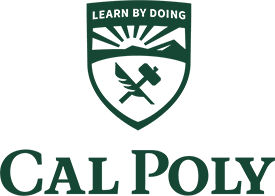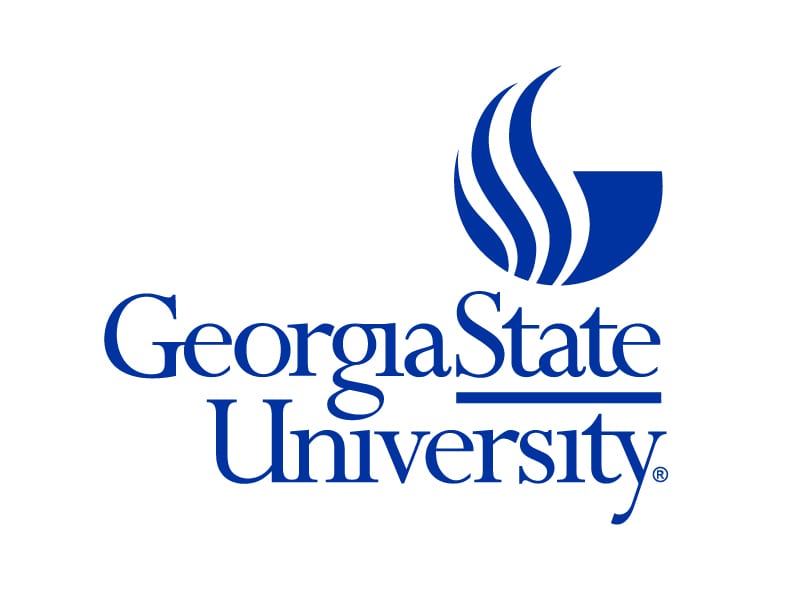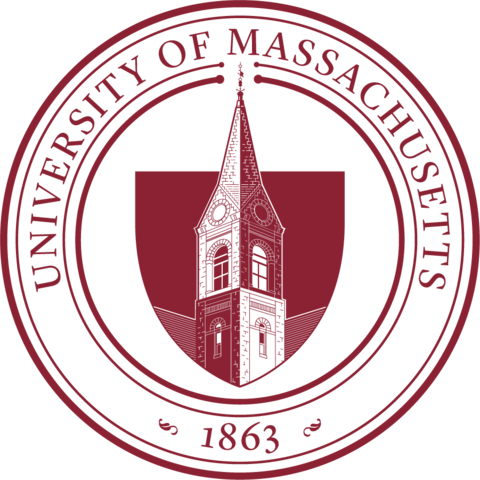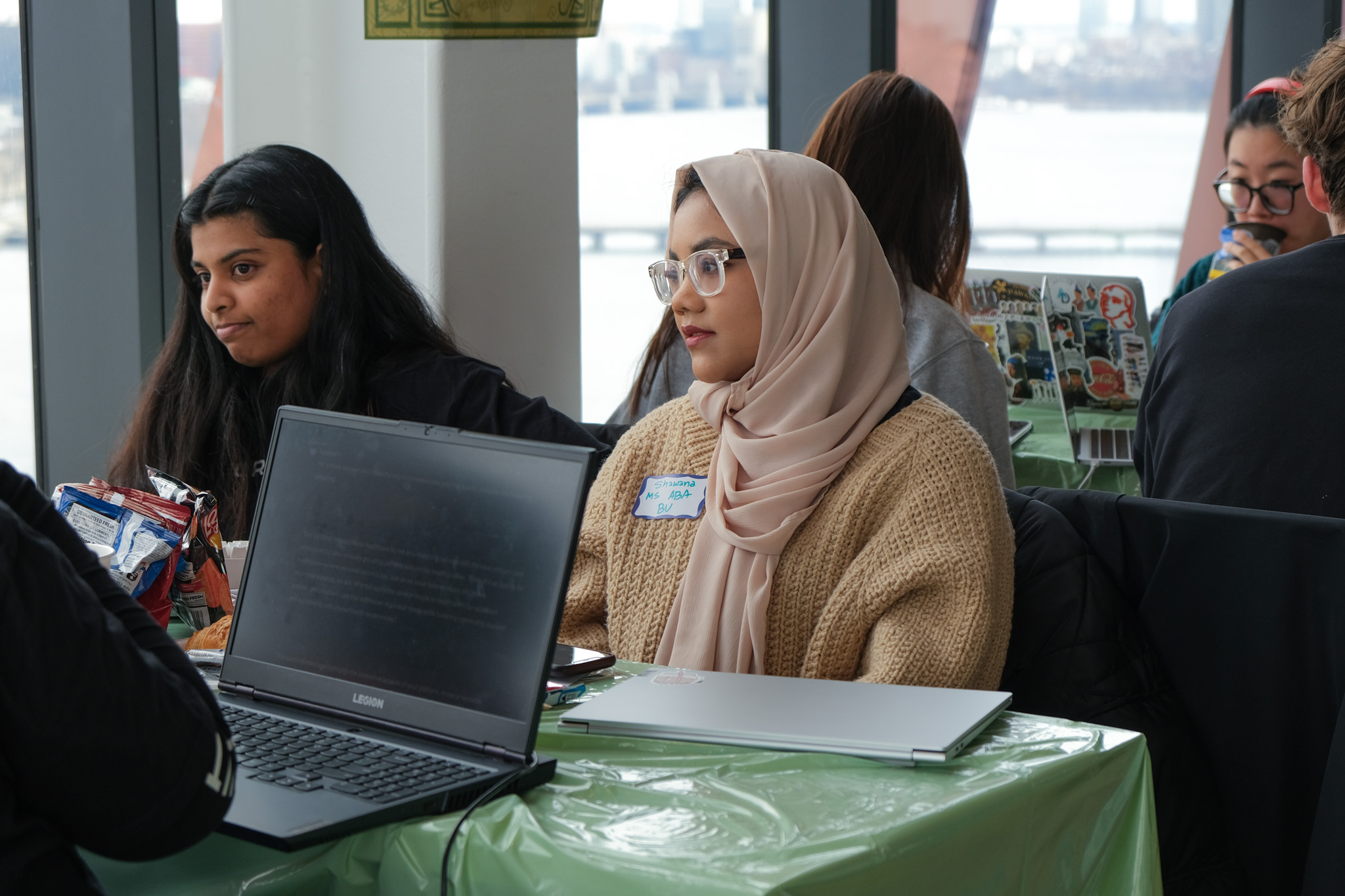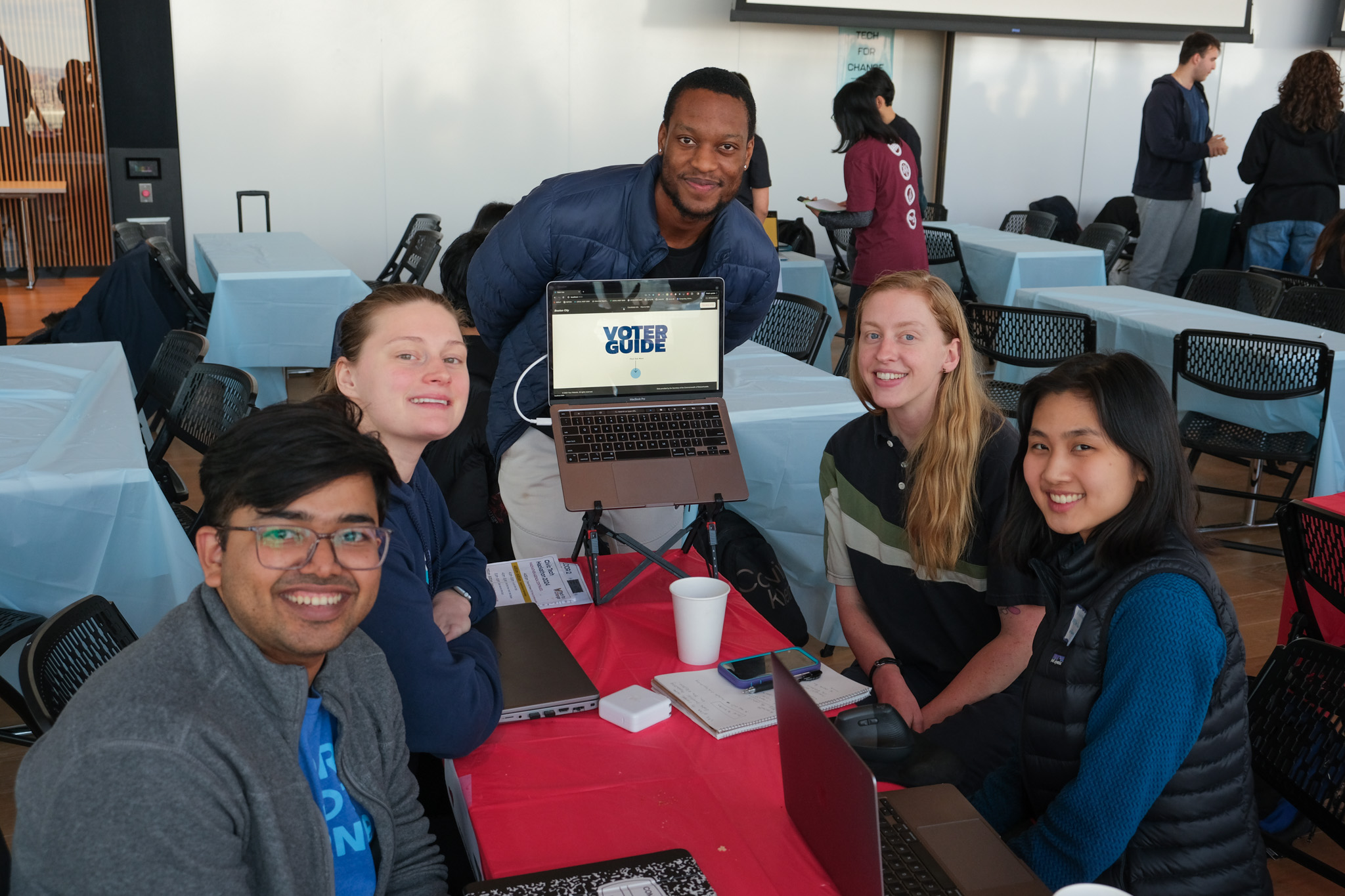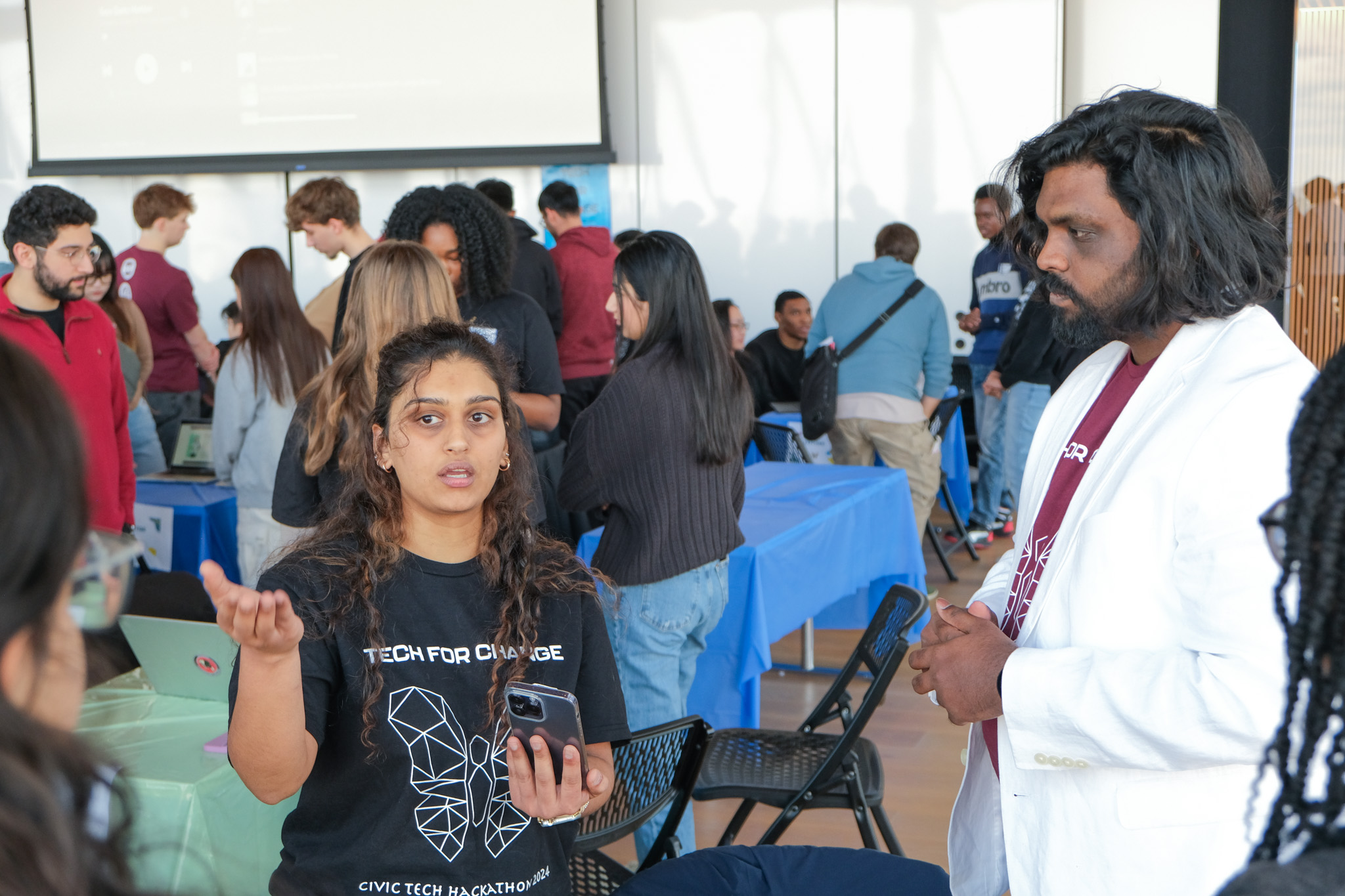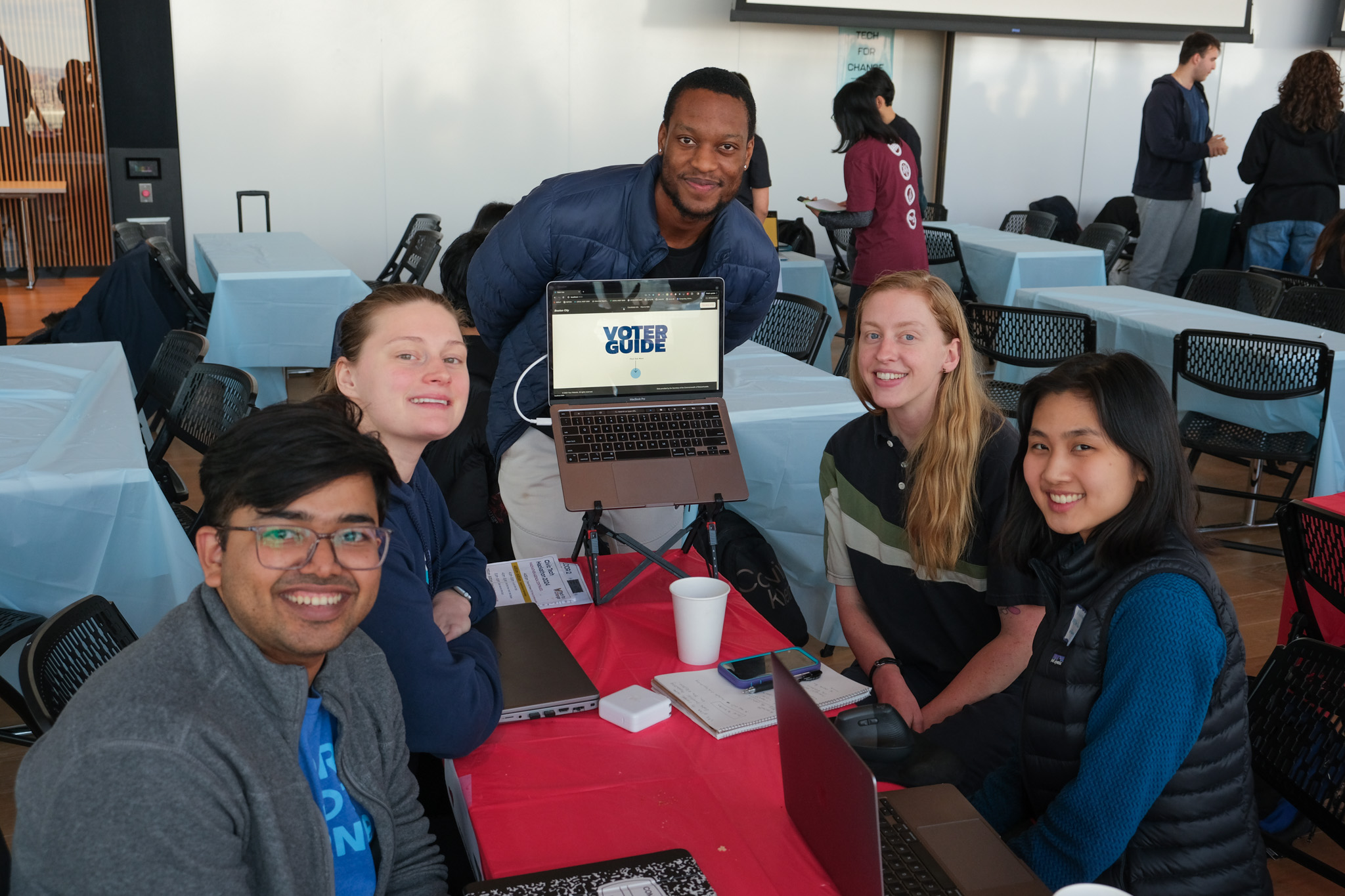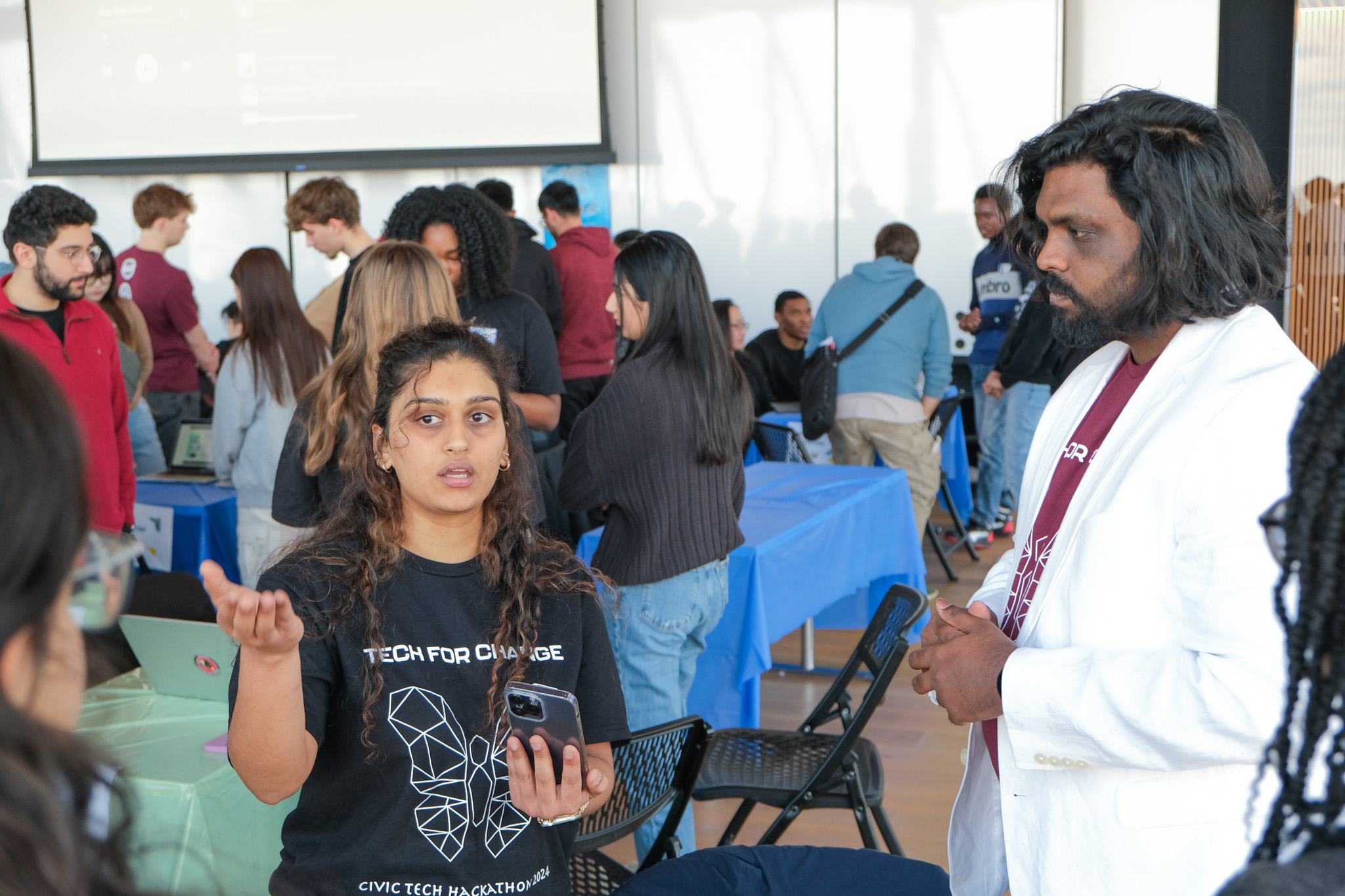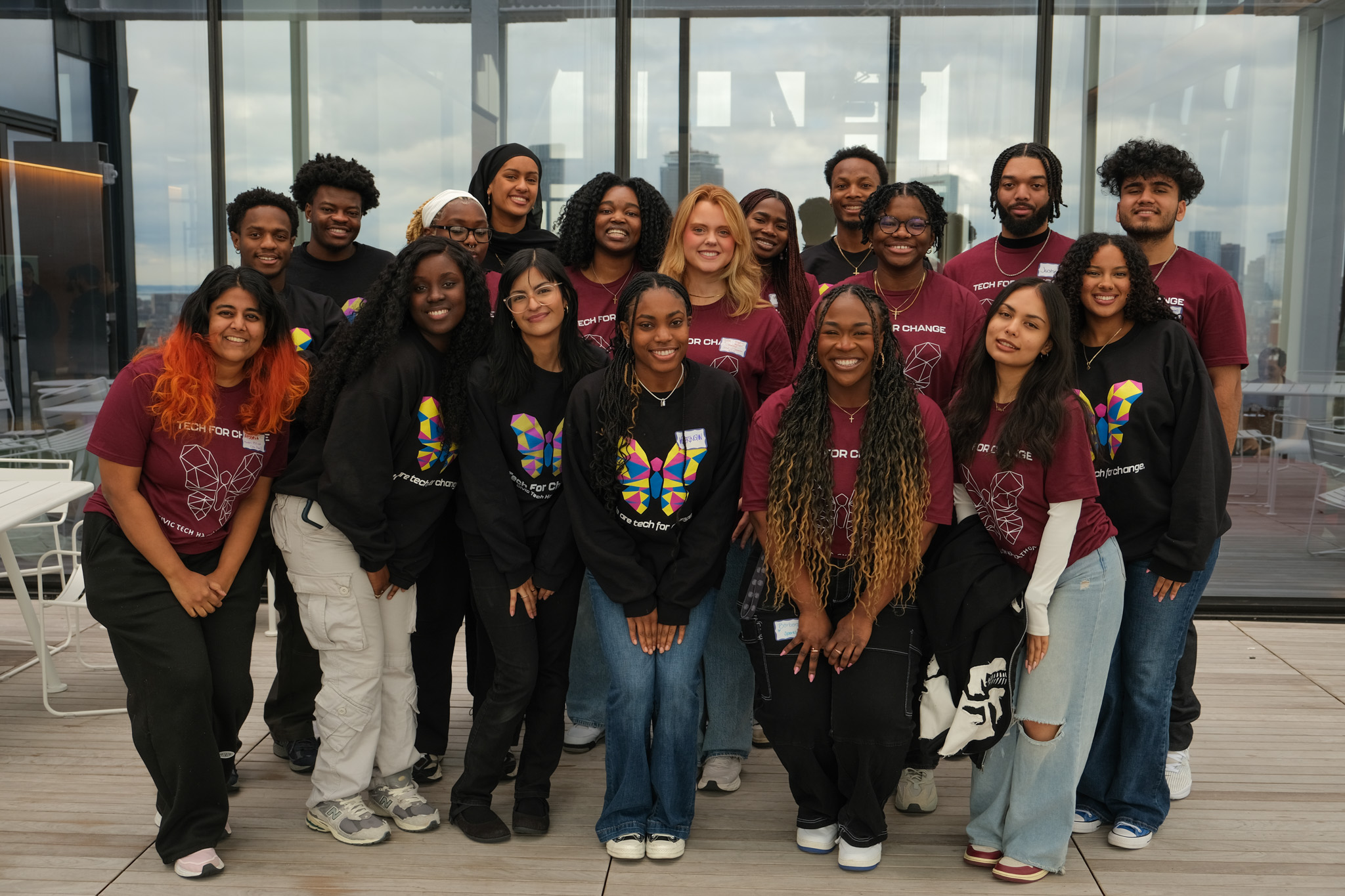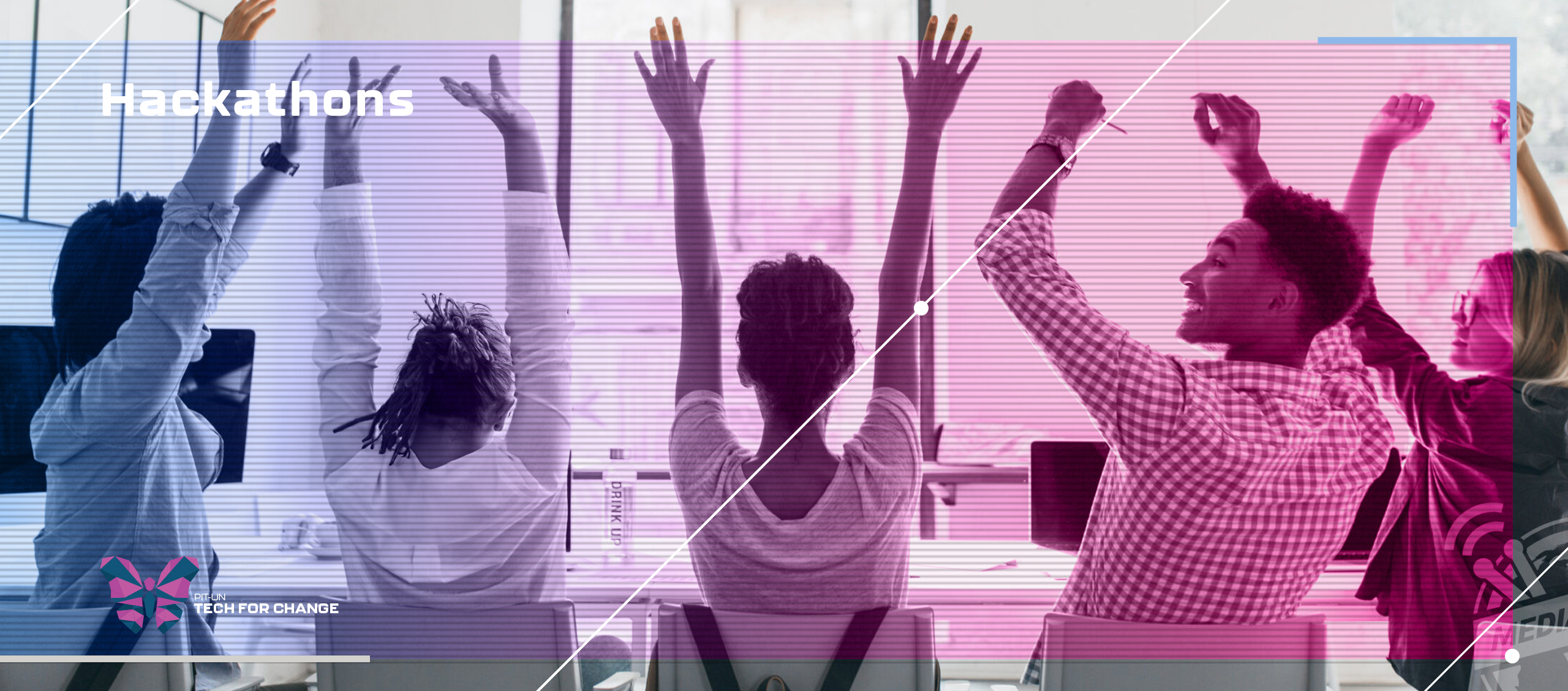
PIT-UN 2025 Tech for Change Hackathons
The following PIT-UN member institutions have been awarded funding to host a Tech for Change Hackathon to engage students from across disciplines in solving community needs. TFC Hackathons are civic-focused, community-driven, and deployed by students to address local injustices.
Please contact the Hackathon lead for each institution for more information.
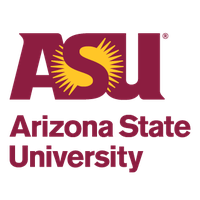
October 16-19, 2025
Hackathon Lead: Nicholas Pilarski
Associate Professor,
The Sidney Poitier New American Film School

April 2025 & Fall 2025
Hackathon Lead: Daren Coudriet
Executive Director of Innovation and the Nittany AI Alliance
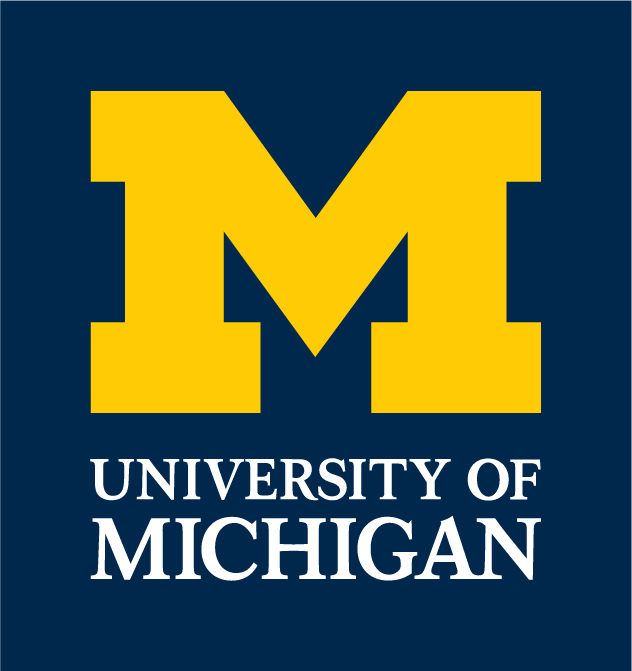
Held December 2024
Hackathon Lead: Yousif Hassan
Faculty Advisor for Tech for Social Good, assistant professor at the Gerald R. Ford School of Public Policy
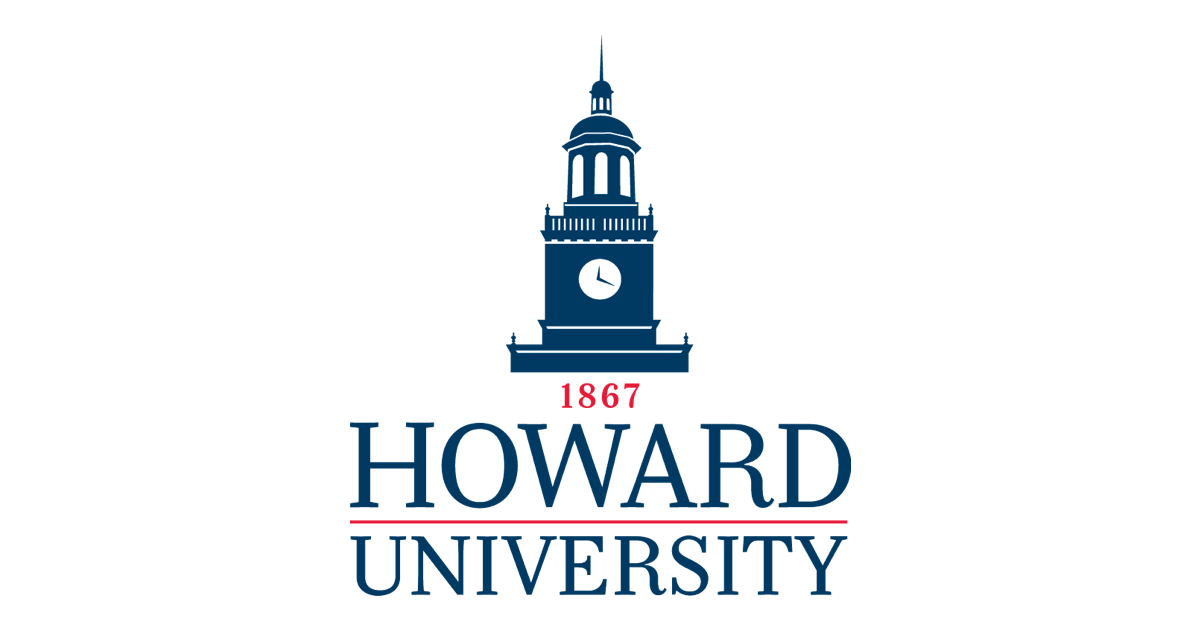
Held March 22-23, 2025
Hackathon Lead: Amy Quarkume
Associate Professor, Earth, Environment and Equity | Data Science and Analytics | Afro-American Studies
Photos from the 2024 Tech for Change Hackathon, co-hosted by Boston University and Howard University
The Tech for Change Hackathon is program within the Public Interest Technology University Network, a project of the New Venture Fund (NVF), a 501(c)(3) public charity that supports innovative and effective public interest projects.
Tech for Change Hackathon Core Elements
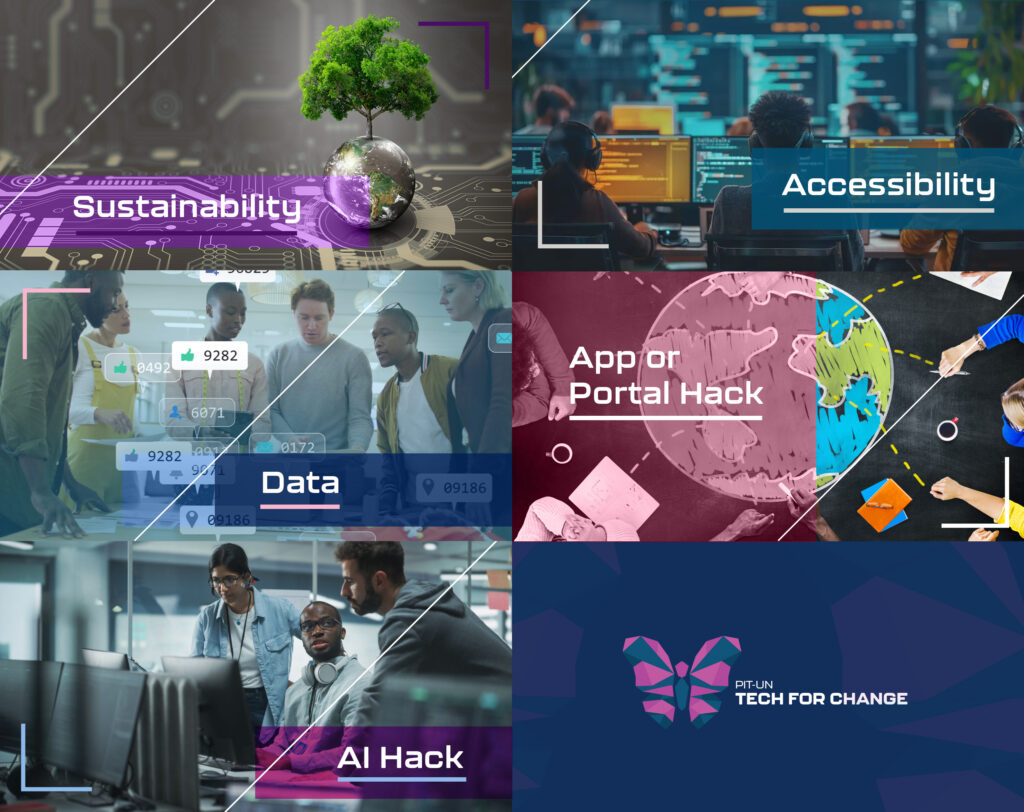
Work toward equity cannot happen in a vacuum. As such, Tech for Change Hackathons should be intentional about forming and maintaining engaging partnerships with members of your community. When you are hosting a Tech for Change Hackathon, we encourage you to be mindful of equity and inclusion at every step along the process.
Winning proposals must include a plan for participation of students from across both technical and nontechnical disciplines. The better a hackathon team is organized, the better the outcome of the hackathon. Elements of a well-designed Tech for Change Hackathon include partnerships and community engagements, social justice theme(s) and tracks, mentors and judges, and inclusive communication and marketing.
Tech for Change Hackathon proposals should include such potential judging categories as:
- Sustainability: Teams develop a hack that provides an innovative and practical technical solution that is financially or environmentally sustainable.
- Accessibility: Teams develop a hack that promotes accessibility and inclusion.
- Data: Teams produce subject-specific data visuals with the larger hack or use data in a unique and innovative way.
- App or Portal Hack: Teams build a decentralized application or portal as open source and share it with the world.
- AI Hack: Teams use or improve AI responsibly and creatively to solve for community needs. All teams need to be very upfront in what was created versus public tools they used in the final project.
